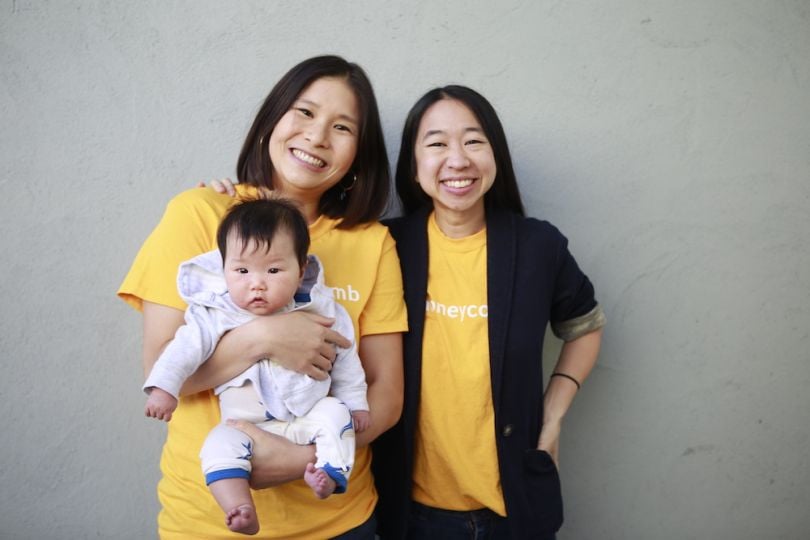Sure, the latest initiatives from the Teslas, Apples and Googles of the industry tend to dominate the tech news space — and with good reason. Still, the big guns aren’t the only ones bringing innovation to the sector.
In an effort to highlight up-and-coming startups, Built In is launching The Future 5 across eight major U.S. tech hubs. Each quarter, we will feature five tech startups, nonprofits or entrepreneurs in each of these hubs who just might be working on the next big thing. Read our round-up of rising startups from last year here.
***
San Francisco is still the tech capital of the world. Despite the unwavering pandemic, corporate big dogs like Apple and Facebook (erm, Meta) still have their roots firmly planted in the fog of the Bay Area. But what about the little guys? Plenty of up-and-coming startups are popping up that deserve their share of the spotlight as well.
Over the course of the last year, San Francisco techies have continued to innovate. From digital scrapbooking to gamified diversity training, the local innovators on this list may be small but that doesn’t mean they should be underestimated.
BUILT IN’S FUTURE 5 UP-AND-COMING SAN FRANCISCO STARTUPS, Q1 2022
- Bounce (SaaS)
- Honeycomb (Social Media)
- Jupiter (SaaS)
- Tagg (Social Media)
- Unpacking (HR Tech)

Bounce (SaaS)
During lengthy layovers, curious fliers might choose to make the most of their time by leaving the airport to explore a bit before their next flight. The only drawback? Figuring out what to do with their luggage.
Bounce was founded to solve this problem. The company’s app connects travelers with short-term luggage storage units so that they can leave their baggage behind and enjoy the sights and sounds of a new city.
Bounce CEO Cody Candee has always loved to travel. The former product manager of Intuit has visited over 60 countries.
The idea for Bounce came about during an after work outing with Candee’s former colleagues in San Francisco.
“One of them needed to go all the way home and then come back to meet us, all because they didn’t want to bring their bag with them,” Candee told Built In. “That was the moment that I realized there had to be a better way, an option to summon our belongings away from — and back to — ourselves when it was actually convenient for us, rather than missing out because of them.”
Thus, the idea for Bounce was born. The app connects users with dozens of local businesses to store their belongings, from laundromats and delis to hotels and cafes. Once a user has found their preferred storage place they can show up, drop their stuff off and go about their day. The app charges a daily flat fee of $5.90 and requires each location to offer a designated storage room that’s off limits to their daily customers.
Bounce isn’t just limited to frequent fliers though. The company also provides package acceptance services and long-term storage options.
“We’re helping [small businesses] make additional income using nothing more than the space they’ve already got,” Candee continued. “Small businesses are such an integral part of our communities wherever you are, and with Bounce not only do we provide a way for users to make the most of their day, we get to help these small businesses make the most of their space, too.”
The startup trialed its prototype service in New York and has since expanded to cover over 5,000 locations in the U.S. and more than 1,000 cities worldwide.
Bounce has raised $3.2 million in seed financing, according to Crunchbase.

Honeycomb (Social Media)
Social media can feel quite noisy nowadays. Photos of the grandkids are oftentimes sandwiched between tons of clickbait, ads and influencer content. SF-based company Honeycomb is on a mission to make social media more personable with an app that’s designed for saving family memories.
“People are burned out on Facebook and Instagram, and the constant public eye. The world is ready for a more intimate social network. We started [the company] for ourselves and our own families,” Amelia Lin, co-founder and CEO of Honeycomb, told Built In. “I’d wanted, for a long time, a kind of digital album that I could pass down to my kids someday, but I wanted stories that felt alive, not just a square grid of photos.”
Honeycomb was initially built with the intent to connect elders to their adult children. That mission seemed especially prescient in the early days of the pandemic, when the app was being developed.
As the app grew over the pandemic, Lin and her team noticed a demographic shift amongst their user base. Adult children of elders were using the app to keep tabs on their little ones as well.
“We quickly realized that we were no longer building an app simply to record our elders’ memories, but in fact an app to connect generations around shared stories and milestones,” Lin said in a company blog. “First steps, first words, and all of the cute, frustrating and funny moments in between.”
Honeycomb users are presented with multiple ways to save their favorite memories. The app’s digital scrapbooks can be filled with everything from photos and videos to voice memos and text-based journal entries. Users can even set daily reminders to prompt them to add their favorite memories on a day-to-day basis.
Honeycomb launched out of private beta in December of last year. The company has raised $4 million in seed financing and is now hiring for both a frontend and backend engineer.

Jupiter (SaaS)
Meal planning can be such a headache and meal kit costs can add up quickly. Stanford-based startup Jupiter is on a mission to change that. Jupiter isn’t just another grocery delivery company or meal kit service — it’s both. Users can hop on the app with their own personal grocery lists or they can plan their week by meal with one of the hundreds of recipes from the company’s archive.
“People today are getting four or more deliveries per week from multiple providers (groceries, meal kits, restaurant delivery, etc). This not only increases the risk of Covid exposure but it’s also very time consuming,” Anna Piñol, co-founder and CMO of Jupiter, told SFWeekly.
Those interested in the app first get started with an onboarding questionnaire that intends to cover their dietary needs and lifestyle. Every week thereafter, a smart shopping plan is sent out with a personalized list of pre-selected groceries. If the list calls for adjustments it can be edited and Jupiter then stores that information for the next week’s run.
Jupiter members pay a flat rate of $45 plus the cost of groceries. The company has raised $2.8 million in seed financing to date, according to Crunchbase.

Tagg (Social Media)
If you’ve ever jokingly (or seriously) referred to your online presence as your “brand” then Tagg is the platform for you. The Palo Alto-based startup is providing Gen Z with a way to more accurately market their online personas with a new social platform.
“We want you to expand past content creation of what you have already gone viral for, and into content creation based on your interest and passions,” a spokesperson for the company said in a statement.
Most social platforms aren’t built for content that doesn’t ascribe to a specific niche. For example, if you’re a fitness content creator but you also love gaming and anime, then it might be difficult for you to earnestly share your other passions without fear of losing your following. Tagg was created with the intent to ease that burden.
“Currently self-branding online has a bunch of negative connotations but we want to restructure the vibe around it because we Gen Zers happen to communicate through branding,” the spokesperson continued.
Eighty-eight percent of Gen Z considers their online presence their brand, according to a report by Morning Consult.
“Tagg lets creatives connect and build with each other in an environment where nothing is off brand but everything you do, adds to the brand you are building,” the spokesperson said.
With Tagg, users can create a more cohesive brand with a page that lists dozens of their interests. Tagg members can link to all of their other social profiles, show off what they’re streaming, join groups with like-minded friends and more.
The young startup is already off to a strong start. Tagg has raised $2 million in seed financing, according to Crunchbase. The company has already grabbed the financial attention of several top Silicon Valley executives including Twitter co-founder Biz Stone and Facebook’s former head of international growth, Ed Baker.

Unpacking (HR Tech)
Training sessions can be a drag, no matter how important the topic being covered is. That’s why Oakland-based startup Unpacking is updating diversity, equity and inclusion training with a gamified approach.
Unpacking incorporates a range of interactive elements in order to keep employees engaged throughout its diversity training sessions. For one, the startup keeps things visually exciting by incorporating GIFs and emojis into its quizzes. To add, Unpacking also includes interactive videos and coverage of current events in order to connect its lessons to the real world.
The company’s diversity certifications are completed in a collaborative cohort with team members over the course of a week. The cohort includes two days of independent learning and two days of virtual workshops.
After receiving your anti-racism certification you’re free to move about the rest of the platform where you can find monthly DEI events, hop into a live audio chat or touch base on key issues with your colleagues.
“My vision is clear for my company. My spirit is guided by the divine. My head is down and my mind is focused,” Kristina Williams, founder and CEO of Unpacking, said on LinkedIn. “Unpacking is going to change workplace well-being for generations to come. I learned so much over this past year and a half building our beta platform, running pilots and learning from customers directly.”
The young startup has done well for itself in the relatively short time since its launch. In 2020, Unpacking earned a grant from Beyoncé’s BeyGood foundation in collaboration with the NAACP.
Unpacking has raised $120,000 in venture capital financing to date, according to Crunchbase.



